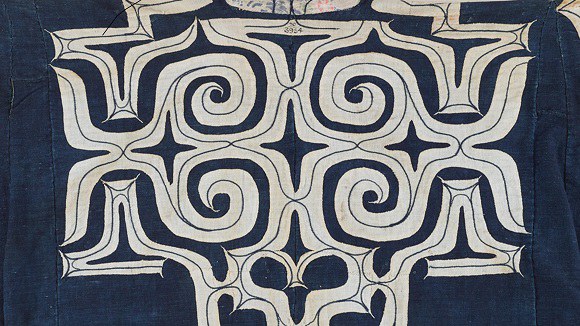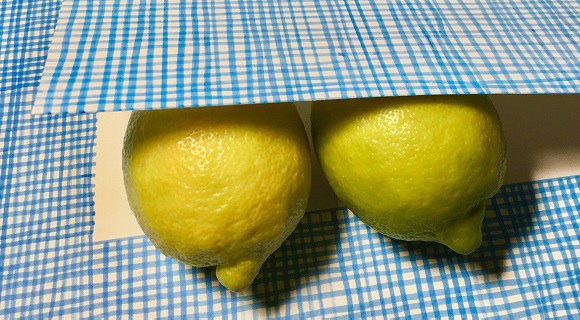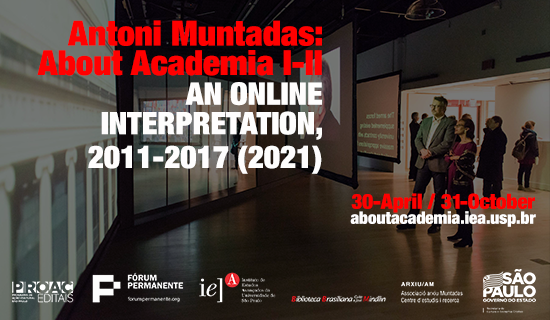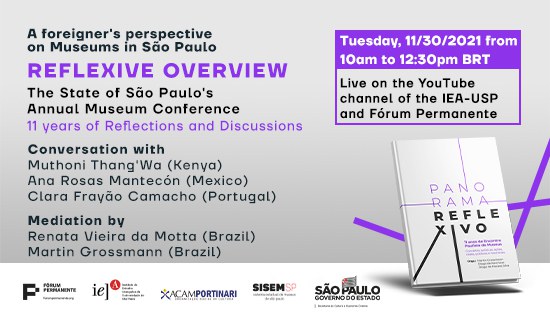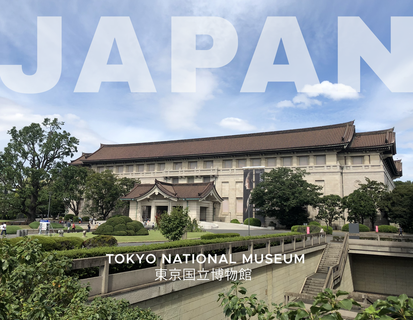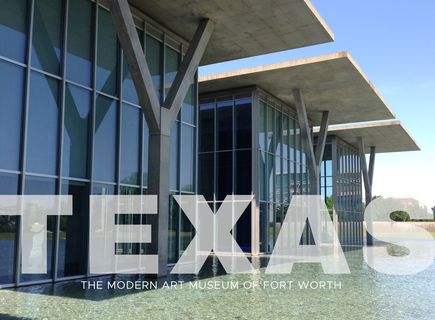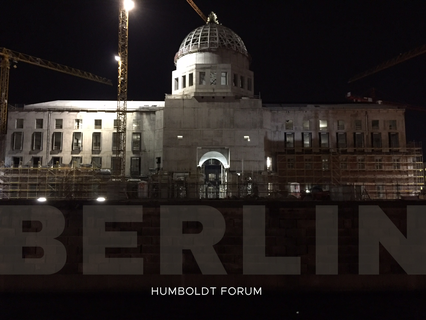 |
|---|
Forum Permanente is a critical platform for cultural action and mediation and operates nationally and internationally on different levels of the contemporary art system. Its framework is based on a network of partnership with various players in the arts and culture fields, arts institutions and foreign cultural agencies. In operation since 2003, the main Forum Permanente initiatives include curating discursive and dialogic events, organization of workshops on curatorship, development of research-based projects, organization of specialized publications, dissemination of contemporary art related events and art institutions, online streaming of activities and publishing of critical reports on these activities. The website forumpermanente.org functions as an interface and thus, in a hybrid way, operates in multiple layers: as a museum-laboratory; as a magazine-journal; as a living archive, by hosting projects, research, debates and dossier files; as a publishing house and a multimedia producer, by producing a variety of outputs, in particular critical reviews and video recordings of almost all activities undertaken by Forum Permanente. The website content is fully accessible under a creative commons license.
23 Conferência do ICOM
Jun 21, 2016
ICOM Dialogo Sul-Sul de Museus
Jul 03, 2015
The Now Museum: Contemporary Art, Curating Histories, Alternative Models
New Museum, New York, March 2011
Sep 15, 2021
International Encounter on Curating
Sep 17, 2010
Museum as Interface
The departure point for this concept is the author’s PhD thesis entitled "Museum Imaging, Modelling Modernity" of 1993 at the University of Liverpool and the most recent field of application, in addition to Forum Permanente (this mediation platform where this essay is published), was the Sao Paulo Cultural Centre (CCSP) where from July 2006 to May 2010 an institutional programme was developed, influenced mainly by the conclusions, ideas and situations presented and discussed in this text.
Jul 23, 2018
PARALELO // technology and environment
Mar 25, 2009
The global turn of contemporary art in Brazilian collections
Workshop, August 21/22, 2008, Goethe-Institut São Paulo
Dec 01, 2012
Sonsbeek 2008
Principal exposição internacional de escultura da Holanda acontecerá no Sonsbeek Park em Arnhem de 13 de Junho até 21 de Setembro.
May 27, 2008
Goethe Institut
Aug 30, 2012
Fórum Permanente no debate acerca do Humboldt-Forum
As fotos nessa pasta, de autoria de Martin Grossmann, foram tiradas em duas ocasiões. A primeira no inicio de dezembro 2015 por ocasião da participação do mesmo na conferencia Perspektiven15, que reuniu especialistas internacionais para discutir as relações entre MUSEU, PÚBLICO & MEDIA. A documentação dessa conferencia encontra-se no site do Forum Permanente. As fotos relativas aos meses de setembro, outubro e dezembro 2016 foram realizadas durante a permanência de Martin Grossmann como professor visitante no Cluster de Pesquisa "Image, Knoweledge, Gestaltung" da Humboldt Universität zu Berlin.
Oct 16, 2016
Art Museums in Texas_United States of America |||| Museus de Arte no Texas
Some museums visited in 2014 and 2015 | photos by Martin Grossmann
Nov 03, 2023
Japan: art museums & congeners ||||| Japão: museus de arte & congêneres
This is a —in process— image archive (inspired by André Malraux, Aby Warburg, Paul Otlet, Hans Belting amidst others) of the ongoing research in Japan mainly on art museums. The question that is at its core is: "Why Japan has art museums?" Aparently a stupid question, but in fact it was formulated insofar I am trying to understand the establishment, geanology, history and development of this Western, Eurocentric cultural and artistic dispositif in these islands. The reason behind the existance of museums elsewhere apart from Europe and the United States is mainly due to Colonialism. But not in Japan. Although the "object" is the art museum, for this empirical and critical research it has been of great importance the experience of visiting not only museums but other correlate/convergent dispositifs , plataforms and events. This research was sparkle by a first and very short visit to Japan in 2014 when I was able to visit the Tokugawa Museum in Nagoya and the Mori Art Museum in Tokyo. It started in fact in 2016 when I was able to visit the Setouchi Trienalle, where I experienced the Benesse Art Site and its museums, in Teshima and Naoshima. On that occasion I also visited some contemporary art venues in Tokyo. Thanks to the WIAS- Waseda Institute of Advanced Study I am now based in Tokyo at the Waseda University campus during two full months (September & October, 2019), in an imersive and intensive research period, visiting again museum and congeners, reading and learning about Japanese culture. This in process, online and open access visual archive allows you to follow this, in part, ineffable experience. Enjoy! | Most images were taken by me, Martin Grossmann <https://www.waseda.jp/inst/wias/other-en/2019/08/22/6539/>. Please note that, as the entire site, these images are under the Creative Commons license: Attribution-NonCommercial-NoDerivs | CC BY-NC-ND |||||||||||||||||||||||||||||||||||||||||||||||| Este é um arquivo - em processo - de imagens (inspirado em André Malraux, Aby Warburg, Paul Otlet, Hans Belting, entre outros) da pesquisa em andamento sobre museus de arte no Japão. A questão que está em seu cerne é: "Por que o Japão tem museus de arte"? Aparentemente uma pergunta estúpida, mas na verdade ela foi formulada na medida em que estou tentando entender o estabelecimento, genealogia, história e desenvolvimento deste dispositivo cultural e artístico ocidental, eurocêntrico, nestas ilhas. A razão por trás da existência de museus em outros lugares além da Europa e dos Estados Unidos deve-se principalmente ao Colonialismo. Mas não no Japão. Embora o "objeto" seja o museu de arte, para esta pesquisa empírica e crítica tem sido de grande importância a experiência de visitar não apenas museus, mas outros equipamentos culturais correlatos/convergentes, plataformas e eventos. Esta pesquisa foi despertada durante uma primeira e muito curta visita ao Japão em 2014, quando pude visitar o Museu Tokugawa em Nagoya e o Museu de Arte Mori em Tóquio. Começou de fato em 2016, quando pude visitar a Trienal de Setouchi, onde também se encontram o Benesse Art Site com seus museus, em Teshima e Naoshima. Nessa ocasião, visitei também alguns locais de arte contemporânea em Tóquio. Graças ao WIAS- Waseda Institute of Advanced Study, estive baseado em Tóquio no campus da Universidade Waseda durante dois meses completos (setembro e outubro de 2019), em um período imersivo e intensivo de pesquisa, visitando novamente museus e congêneres, lendo e aprendendo sobre a cultura japonesa. Este arquivo visual em processo, on-line e de acesso aberto permite acompanhar esta experiência, em parte, inefável. Aproveite! | A maioria das imagens foram tiradas por mim, Martin Grossmann | Observe que, como o site inteiro do Forum Permanente, estas imagens estão sob a licença Creative Commons: Attribution-NonCommercial-NoDerivs | CC BY-NC-ND
Nov 03, 2023
MIT_ECA_CCSP_2008
Dec 01, 2012
Museum Art Today: This compillation brings important contribuitions for the understanding of the art museum´s role and mission in Brazil in a globalised situation, having as a starting point the MASP, the São Paulo´s Art Museum designed by Lina Bo Bardi inaugurated in 1968.
Critical Reports: 27th São Paulo Biennial Seminars: This book brings together some of the critical reports produced for the 27th São Paulo Biennial International Seminars, becoming therefore a critical document of the discursive events that took place along 2006.
Modes of Representation of the São Paulo Biennial The passage from artistic internationalism to cultural globalisation: This book presents part of the results of the PhD research undertaken in the School of Communication and Arts of the University of São Paulo that studied three São Paulo Biennial editions, the ones that took place in 1998, 2006 e 2008.

